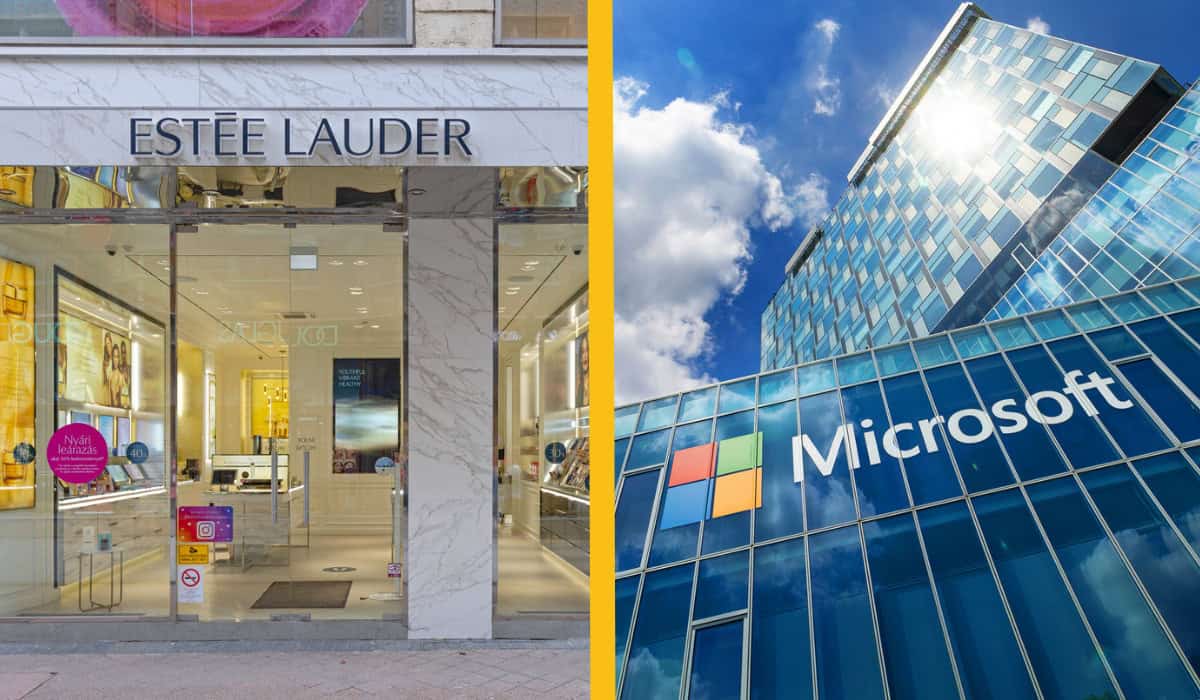
iStock.com/Baloncici | iStock.com/lcva2
Will Estée Lauder and Microsoft’s AI Collaboration Affect the Beauty Industry?
In a recent announcement, The Estée Lauder Companies (ELC) and Microsoft Corp. disclosed plans to establish an AI Innovation Lab, marking an extension of their existing global partnership. Through the utilization of advanced generative AI (GenAI) capabilities within Microsoft’s Azure OpenAI Service, the objective is to foster closer connections with consumers, expedite product launches, and enhance local relevance across ELC’s portfolio of over 20 beauty brands.
The collaborative effort aims to address key areas within ELC’s operations, including:
- Agile response to market trends: ELC and Microsoft have developed an internal GenAI chatbot to bolster marketing efficiency globally.
- Accelerated product innovation: GenAI tools are being integrated into ELC’s research and development processes to streamline product development cycles.
Jane Lauder, EVP of enterprise marketing and chief data officer at The Estée Lauder Companies, emphasized the role of technology in amplifying the company’s commitment to high-quality products and personalized consumer experiences. She said, “With Microsoft’s generative AI tools and extensive expertise, we are able to leverage ELC’s tremendous data to create more personalized consumer experiences and faster insights to action resulting in increased speed to market and stronger local relevancy.”
Shelley Bransten, corporate vice president of global industry solutions at Microsoft, highlighted the potential of GenAI to revolutionize the beauty industry by delivering immersive customer experiences, expediting product launches, and driving sustainable product innovation.
This collaboration marks a significant milestone in the longstanding partnership between ELC and Microsoft, which commenced in 2017. Notably, ELC previously utilized Azure AI as the foundation for its Voice-Enabled Makeup Assistant, a pioneering mobile app launched in early 2023 to assist visually impaired users in makeup application. The app, available on iOS and Android in select markets, is slated for further expansion in the coming months.
The AI Innovation Lab is specifically designed to harness GenAI across ELC’s extensive portfolio of beauty brands, including Clinique, Mac Cosmetics, and the Estée Lauder brand itself.
Among the projects currently underway is the development of an internal chatbot. This tool employs sophisticated conversational AI technology to help brands efficiently access authorized product claims, facilitating rapid responses to emerging trends or consumer needs. By tapping into a database of scientifically proven product benefits, marketers can align their campaigns more effectively with local and emerging trends.
Moreover, the lab is exploring ways to utilize GenAI to expedite responses to evolving product and ingredient trends, thereby streamlining the research and development process. This integration of AI tools enables scientists and product development specialists to respond promptly to emerging trends.
These innovations hold particular significance for the beauty industry, where rapid shifts in consumer preferences necessitate agile responses, according to Bransten. She noted that an IDC study commissioned by Microsoft “found that for every $1 a retail and consumer packaged goods company invests in AI, it sees a return of $3.45.”
ELC’s exploration of GenAI dates back several years, with the development of internal standards guiding its initiatives. In 2023, the company hosted its inaugural “AI Ideathon” for global employees, fostering creative brainstorming around AI-powered solutions.
Operated as a joint venture with Microsoft, the lab will integrate existing employees from both companies, with some ELC employees undergoing upskilling initiatives.
This endeavor represents one of the earliest instances of a dedicated AI incubator in the fashion and beauty realm, spearheaded by Lauder. Amidst a surge in GenAI innovations, industry players are increasingly drawn to AI startups and tools. Notably, the New York Fashion Tech Lab and the LVMH Innovation Prize reflect a growing emphasis on AI-driven solutions.
Major tech companies, including Google and Meta, are also making strides in AI integration, offering tools tailored to retail and creative industries.
Discussion Questions
How might the integration of generative AI technology into beauty brand operations redefine the landscape of consumer engagement and product innovation within the retail industry?
With ELC’s AI Innovation Lab focusing on agile responses to market trends and accelerated product innovation, what implications does this approach have for other consumer-packaged goods companies seeking to leverage AI for competitive advantage and enhanced customer experiences?
